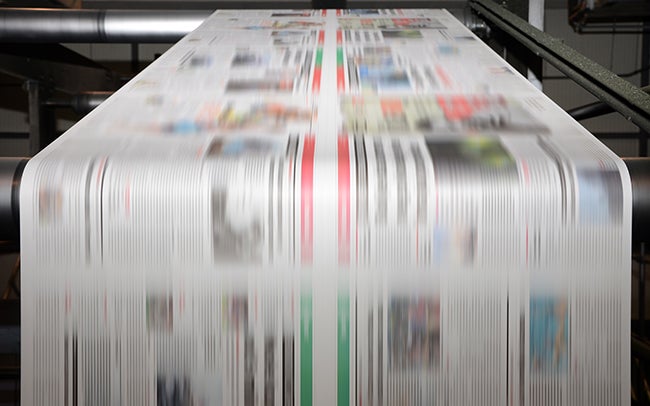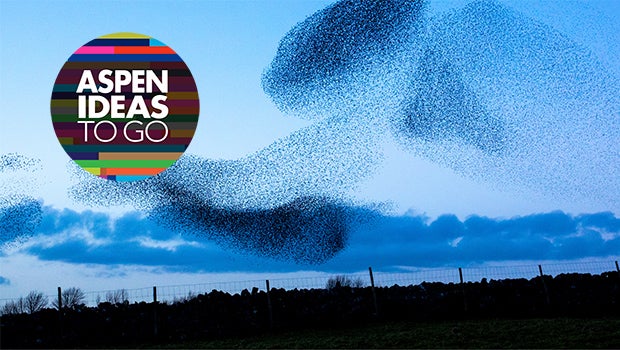We’re living in an age of information overload and the crisis of fake news — and we could be dealing with it better, suggested neuroscientist Daniel Levitin, who spoke as part of the Murdock Mind, Body, Spirit series in Aspen recently.
Americans are taking in five times as much information each day this year than they did in 1987 — a stunning and impossible-to-process 35 gigabytes of information during our leisure time in just one day, said Levitin. “That’s a huge cognitive burden, and it leads to a sense of fatigue.”
Multitasking, the typical response to this firehose of information, doesn’t work, Levitin explained. The science is very clear: The human brain pays attention to each thing separately, shifting back and forth as necessary.
“We’re fracturing our attention into little bitty pieces and never paying full attention to one thing,” he said. “On every measure, we might think we’re getting more done, but on every measure we’re doing worse.”
That sense of fatigue? Whenever the brain switches to another thing, it uses part of the brain’s fuel — a glucose — so multitasking actually depletes the supply of brain energy quickly. Ten years of studying this phenomenon led Levitin to writing The Organized Mind: Thinking Straight in the Age of Information Overload, from which he shared a few solutions.
Taking naps or breaks is key. According to Levitin, a ten-minute power nap can be as effective as 90 minutes of extra sleep the previous night in restoring up to ten IQ points. If it’s a non-snoozing break, it has to be the kind of break that allows your mind to wander freely — checking Facebook doesn’t count.
In general, it’s helpful to try to “unitask” whenever you can and allow time away from the internet. “Get absorbed in what you do,” said Levitin, who added that great art comes from sustained concentration. “If cell phones had existed in Michelangelo’s day, we wouldn’t have the Sistine Chapel.”
To increase productivity, Levitin suggests writing down information rather than trusting our memories, which can be unreliable. Neurologically speaking, the act of writing is more complex than typing, so it allows for more cognitive processing.
Levitin also addressed the even more recent phenomenon of “fake news” and the mistrust many Americans have of news sources, which is exacerbated by those in leadership roles questioning otherwise well-accepted facts.
“We can’t have a civil conversation or get anything done if we can’t at least agree on what the facts are,” he said. “If we don’t fight this rising tide of people saying, ‘there’s no such thing as facts’ or ‘facts don’t matter,’ it threatens to set us back 400 years.”
The answer to this crisis of truth, Levitin believes, is in good education and evidence-based decision-making. It must be recognized, for example, that educators no longer need to be so consumed with teaching students straight facts and figures. With Google and other sources of information at everyone’s fingertips, it’s more important to teach students to differentiate between facts and pseudo-facts, to recognize credible (and non-credible) information sources and the plausibility of what’s being presented, and to use information for creative problem-solving.
But the most important quality necessary for productivity and for decision-making, Levitin believes, is humility — a quality that may seem to be in short supply right now.
“The reason humility is such an important quality,” said Levitin, “is that if you’re sure you know something, you’ll plow ahead with conviction and resolve and you don’t consider that you might be wrong. If you move forward with humility, then you can learn something. You can’t learn something if you think you know it all.”


